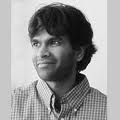Serendip is an independent site partnering with faculty at multiple colleges and universities around the world. Happy exploring!
Towards Day 12 (Thurs, Oct. 6): The Packing Problem

I. coursekeeping
* no writing due tomorrow!!!!
* FALL BREAK (Oct. 7-16)!!!!
* this bumps all writing conferences forward a week
* 5 p.m. Sunday night (Oct. 16):
3-pp. self-evaluation to Anne, 1 paragraph summary posted on-line.
* 10:15 a.m. on Tues, Oct. 18:
be @ Pem Arch ready to board the bus for our trip to Parkway!
on taking notes while there, and
writing up your thoughts soon after....
* 7 p.m. on Wed, Oct. 19: Karen Russell will gives the
Balch Lecture in McPherson Auditorium, Goodhart
* for class on Thurs, Oct. 20:
Make some notes, comparing your writing assignment #5
with the notes you took on our visit to Parkway.
Bring to class your notes/work done towards
revising that paper [which will be due on SUNDAY night that week]
in light of that visit. We'll work through this material again in writing pairs.
(We'll also have a class-wide discussion of our visit to Parkway,
and of our mid-semester assessments).
* and because I know everybody likes to look @ pictures of them/ourselves!
II. Tuesday's discussion: Noguera, Traub and Russell's wolf-girls,
on the middle-class presumptions/values of American education,
whether this pattern is inevitable,
whether there's another way to see this,
another way to tell the story....
one opening would be to imagine it rewritten,
by Cisneros, or hooks, or Dewey, Freire, Noguera,
making Mirabella (for example!) into a main character....
another one was offered on-line by Freckles39: I was able to make a connection between the reading and what I have learned thus far in my Urban Sociology class ... the very nature of cities limits the social capital (as defined by Traub) between its residents. Louis Wirth, who wrote Urbanism as a Way of Life describes the physical structure and layout of a city and how this affects people. According to Wirth, a city can be defined as a large, heterogenous, high-density dwelling. He continues to assert that because there are so many people in cities, primary ties are replaced by secondary ties, and those moving about through the streets are more isolated and lonely because they are less likely to know everyone.
III. Today's reading offers us another re-writing:
a book proposal by psychologist Eldar Shafir and
economist Sendhail Mullainathan on "the packing problem."


"Unpack" this book proposal using an "oral inquiry strategy"
known as "text rendering," a strategy designed to highlight
what kids were accomplishing in--rather than the deficiencies of--their writing,
a strategy for reading closely to see what's going on.
Take a few minutes to look through the book proposal.
Underline a sentence, a phrase and a word from the text.
Not irrelevantly, like many of the conversational strategies
we've been using here-- this exercise is designed to "level the
playing field," to invite all of us to contribute "on the same level."
So now we're going to do a "read around," three times,
reading on the first round just the sentences you've highlighted
(including all repetitions--so listen for these);
then, on the second round, your phrases,
and on the third, your words.
We're sort of making a poem, distilling what's diffuse,
so here are the rules of this:
short pauses between each offering, and no comments.
Also: LISTEN FOR THE THEMES you are hearing,
and jot them down (this of course will give us
material for the next step in our conversation!).
What did you hear? Where were the repetitions?
What were the patterns and main themes?
writing these on the board.....
1) how do you see yourself in this text?
2) what's the good (from a social=science-y perspective)
of these two hyper-priviledged guys making a connection
between the dilemmas of the "money poor" and the "time poor"?
3) how do they specifically address the question of why poor
people don't just exert their will and enter the middle class?
4) the sociological texts we've read make this an institutional/ structural issue
(to be addressed through "pragmatic optimism"; "incompleteness"; "historicity");
this book proposal turns it into a psychological problem
5) a reduction of "othering" (not to be named??)
6) get this, yet question it: life as a "limit situation"
Jody's class to arrive @ 12:15:
break into writing pairs to discuss
what you see as the key ideas and key questions raised--
we will have a 1/2-hour's conversation to help one another
distill and prepare for the next revision (due after break),
in which we will incorporate our experiences @ Parkway;
this is NOT about grammar or style but about core ideas, moving forward,
and also about making your texts not just "writerly" but "readerly"
------
Anne's Reading Notes on "The Packing Problem"
on what happens "when not everything fits"-->
a non-trivial problem involving forecasting, valuation, and ease of packing.
The new "science of scarcity" is ubiquitous in application:
why do the "money-poor," the "time-poor" and entire organizations exhibit an
apparently inconsistent mix of short-sighted and highly self-controlled behaviors?
1) classical mathematical "knapsack" problem illustrates
the core problem of scarcity: that it creates complexity
(the smaller the suitcase, the harder the solutions)
2) cognitive issues here involve the trade-off thinking @ the heart of scarcity:
a persistent questioing of what I need to forego if I treat myself:
everyday choices bring more things to mind--> psychology of attention and distraction
3) evolutionary biological dimension: scarcity forces a focus on the now,
and so elicits specific, unique decision processes (which under chronic
scarcity can lead to perverse consequences: working harder can
reduce self-control, increase distraction and error)
context of urgent need eleicits primitive, instinctual reactions
4) psychology of scarcity plays out in economics and feedback loops
living under scarcity exacerbates the conditions of scarcity;
scarcity brings forth behaviors that reinforce scarcity = "scarcity traps";
the "scarcity mind-set" can motivate, because it focuses,
but it can only be effective in short bursts, because it leads to cognitive fatigue, so that
decision quality suffers (from complexity, shortsightedness, depletion and distraction)
--chronic scarcity generates its own stressors
--TUTS (task-unrelated thoughts)
--intellectual adventurers, wandering far and wide...
--"the irony of poverty": the poor must make higher quality decisions, because they don't have the slack to buffer them, and/but so "get cut twice": being in an enviroment where the decisions have to be better makes it harder to apply better decisions
--we construe our contexts of scarcity too narrowly:
procrastination is a feature of the (time-scarce) enviornment
"having too little money" is most central to poverty:
the lives of the poor entail financial and psychic tightropes
policies must match the psychology of scarcity, and
avoid imposing further cognitive load
doing better under scarcity = the general allocation of attention.


